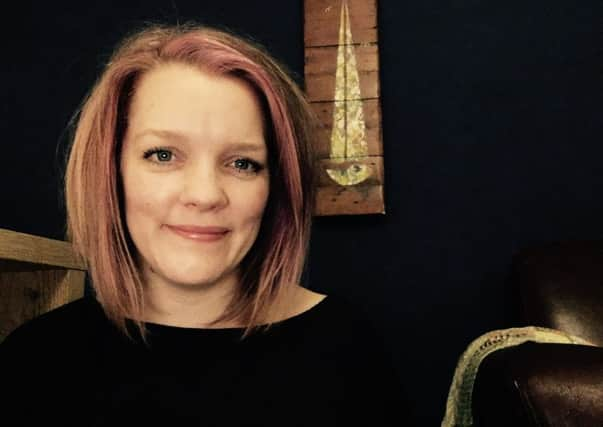The power of words


For many people the 2015 General Election was a bit of a wake-up call. It exposed the fissures within our society – the injustice and inequality – and demonstrated how easy it was to live in a safe bubble where our own views are reflected back to us.
Sheffield-based poet and academic Rachel Bower decided to do something about the disconnect she felt between the result of the election and her own everyday experience of life in South Yorkshire – the cuts to the NHS, social services and mental healthcare provision and the rise in foodbanks – and she wasted no time in putting a plan in action.
Advertisement
Hide AdAdvertisement
Hide AdA month after the election she decided to set up Verse Matters, using poetry to bring people together. “Poetry nights are often quite competitive but I felt there was a gap where people needed a supportive space in order to share their stories,” she says. She contacted professional poets, storytellers and musicians and approached charities and other organisations in Sheffield who work with refugees and asylum seekers and homeless people.
“We had 80 people turn up to the first night which we held in a tiny cafe. It was completely packed and everyone just kept coming back.” There was clearly an appetite for the kind of supportive shared experience that it offered. “It quickly developed into something beyond what one individual could manage and I wanted it to be more sustainable, so about a year ago we set up a collective.” It now meets every month at The Moor Theatre Deli where people can share their poetry, spoken word, storytelling, comedy and music. “We have had so many different people there sharing such diverse experiences,” says Bower. “And it has been wonderful to see so many people’s confidence grow as they have performed their work in front of others.” The whole point of the evenings, says Bower, is to bring people together to share stories that celebrate our common humanity. It is a powerful form of resistance against a prevailing climate of intolerance. “If people can recognise each other as human it pushes against the xenophobia and prejudice we have been seeing recently. The idea is for everybody to be heard and to make connections in that space.” Every event is ‘pay what you can’ so it is accessible to all and practical help is also given, with donations being made to local foodbanks.
Last month the collective produced Verse Matters, a collection of poetry and prose. Published by Scarborough-based Valley Press, it features the work of 34 poets and prose writers. They range from established and celebrated contempory poets such as Hollie McNish, a Ted Hughes award winner, and Malika Booker, a former chair of the Forward Prize for Poetry, to first-time writers and some for whom English is not their first language.
“The book is about being alive and being kind and making connections in this hostile environment,” says Bower who edited the anthology with fellow Sheffield-based writer Helen Mort. “All the poems and stories are about being human. We want to convince people that everybody’s story deserves to be told, everybody’s story has value.”
REVIEW by Yvette Huddleston
Verse Matters
published by valley Press, £10.99
Advertisement
Hide AdAdvertisement
Hide AdEditors Rachel Bower and Helen Mort state in their introduction that their aim with this anthology is ‘to show that in times like these it is more important than ever to celebrate words that attest to being alive – and human. We want to insist on human connections in times in which these are being eroded.’ The collection celebrates exactly that, with some incredibly moving snapshots of everyday life, in the UK and elsewhere, that pefectly illustrate how the ordinary can be extraordinary.
One of the most poignant is Missing My Mum, by Mimi Mesfin (Yenenesh), a nurse from Ethiopia who has been living in the UK since 2015. In it she reflects on the distance between herself and her mother, ‘her soft voice crosses the mountains and the seas’, and she imagines her sitting alone ‘singing the song of loneliness.’
Bashar Farahat, a Syrian doctor who fled to safety in the UK, also remembers his mother who ‘double checks our memory/The part of it which survived the last war.’ Hollie McNish’s Fine explores human vulnerability and the gaps between what is said and what is left unsaid as two friends speak on the phone, assuring each other they are fine when clearly they are not. There is a huge diversity and range of work here, all imbued with a forceful sense of the potential power of hope and humanity, dialogue and empathy.
It is an important, healing book for our divisive times.